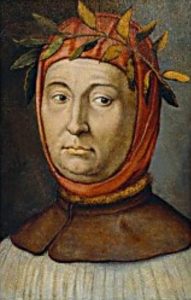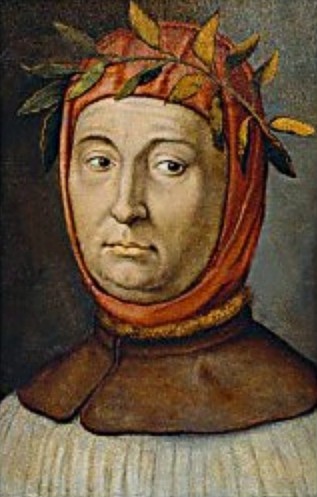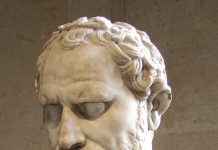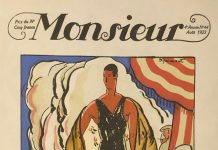Colin Burrow is fascinated how authors over the millennia have imitated one another. He explains why: “Imitation is an important concept because it is one which has never been completely broken down into its constituent elements. It is a revealing way into human and literary history because it is so unruly.”
Burrow was a Fellow at Cambridge before he became Senior Research Fellow at All Souls College, Oxford. In his latest book, Imitating Authors, he examines imitation in three broad time periods: antiquity, with a focus on Plato, Quintillian, Homer and Virgil; early modernity, ranging from Petrarch to Francis Bacon to Cervantes and Ben Jonson; and finally Milton and his successors including Alexander Pope and Mary Shelley.
One must issue a warning before delving into this important book. To read Burrow, one of the finest authors of the English language in this century, it is advisable to keep a dictionary close at hand. For example, he uses a word variation that appears in no other printed text. Since emulable means ‘capable of being emulated’, unemulable must mean ‘incapable of being emulated.’ In a passage about how Quintilian (who wrote the great 12-volume textbook on rhetoric in 95CE) describes Demosthenes and Homer, Burrow uses it thus: “Demosthenes is an emperor of eloquence, who embodies all the laws of eloquence. Homer, too, is unemulably himself.”
Rather than use the English word imitation, Burrow typically employs the original Latin word imitatio, the imitation of authors. “The metaphors used to describe imitatio have a depth and richness that explain their durability,” he writes. “They allow or encourage authors to ask whether they are haunted by the ghost of the past, whether they are culling words from an earlier text or making honey with a new savour, and whether they are free, or are simply following in the footsteps of Homer, or Virgil, or Milton.”
In the first section of the book, Burrow takes a long look at Plato’s “attack on poetry.” While Plato does not explicitly discuss imitatio, he does say that when an actor imitates a certain style (such as that of a madman), it eventually becomes a habit in that person, thus becoming morally degenerative. Even worse, “Plato does not think audiences just watch; he believes they participate emotionally in the performance.” Hence witnessing a degenerative display would engender such degeneracy in the audience too. “This part of Plato’s argument,” concludes Burrow, “is less than fully rational.”
But the flip side for Plato are the positive effects of learning a skill, or acquiring a competence, by long training in imitating the style of a master. “This notion we might call dispositional imitation,” Burrow says, “since it entails learning the dispositions (moral and political as well as stylistic) of an earlier author rather than simply echoing his words.” The author highlights how this works as “one of the most crucial and fertile unanswered questions in the Western literary tradition.” The Roman rhetorical tradition had an “inbuilt resistance” to any ‘Greekish’ attempt “to codify the mysterious talent by which a great orator influences his pupil,” so no progress was made by Quintilian on clarifying the relationship between imitator and the imitated; nor does he offer “the imitator a clear criterion for distinguishing between a similacrum (a superficial likeness of an earlier text or author) and living imitation.” The question “Is an imitator a rebirth of an earlier author or a mere shade?” animates Burrow’s investigation throughout this book. The concept of imitation carried over into early modern science as well, an area not covered by Burrow. Francis Bacon wrote “inventions are also, as it were, new creations and imitations of divine works.”
In Book 10 of his work, Quintilian wrote that an orator should attempt to learn not precepts but the entire habitual practices of a predecessor. “In that sentence,” writes Burrow, “Quintilian grounded his entire discussion of imitation. And that sentence Petrarch never read,” as he was working from an incomplete manuscript. Thus Petrarch incorrectly presented Quintilian to an early modern readership “as a trainer of youth rather than someone who set out a programme for acquiring the skill and habit of a mature orator.” In a work entitled Africa (dating to 1338), Petrarch imitated a lost work by the Roman poet Ennius, who lived 1,500 years before his time. The result was “one of the greatest things Petrarch wrote,” but Burrow gives us a special insight: it was Petrarch’s way “of displacing his own debts to Virgil” onto Ennius.
Skipping ahead three centuries, Burrow writes a pregnant passage about Milton: “Metaphors used by classical writers to describe what happens when people imitate successfully or unsuccessfully do not simply colour Milton’s practice. They give his imitations a larger ethical resonance, and even generate some of the central questions in Paradise Lost about the relationships between image and substance, between creator and his image and likeness, between self and other. Being Milton is as perilous as being Eve, since imitation is duplicitous. It can generate a mass of deadly insubstantial shadows, like Death. Or it can generate a person with her own strength and spirit and ability to replicate, like Eve.”
Burrow is able in this book to discern something new about the author of England’s greatest epic poem. “To the traditional story that says Milton is a poet anxious that his own creativity might be only a Satanic imitation of God’s creativity I have added the thought that much of the language through which that anxiety is articulated can be traced back to the metaphors used to describe imitatio in the classical tradition, and to the particular character of Milton’s own relationship to that educational tradition.”
The spawn of astonishing erudition, this is a book of intoxicating depth that will leave many intelligent readers astonied at their own ignorance in comparison. As I have only offered a few select slices of insight in this review, I highly recommend a full engagement with Burrow’s text.
PS: astonied is an archaic word (not used in this book) which means filled with consternation or dismay. I encountered that word in my own scholarly study of Milton’s Paradise Lost; the abstract is at this link:
https://jps.library.utoronto.ca/index.php/renref/article/view/26541
There is a typo on pg. 5 of Imitating Authors: “by which it now” should read “by which it is now”
Imitating Authors: Plato to Futurity is $45 by Oxford Univ. Press.














